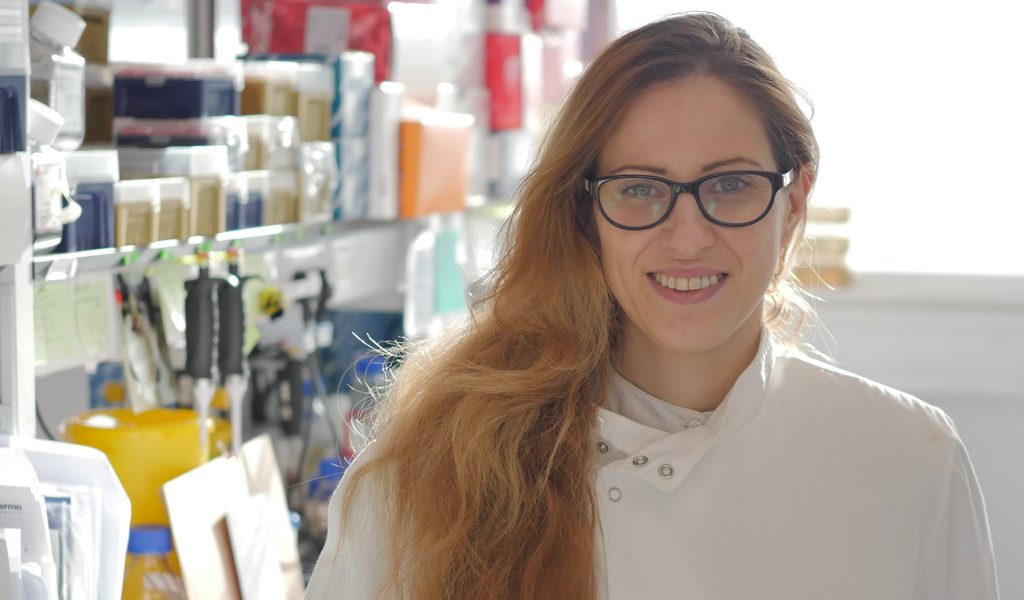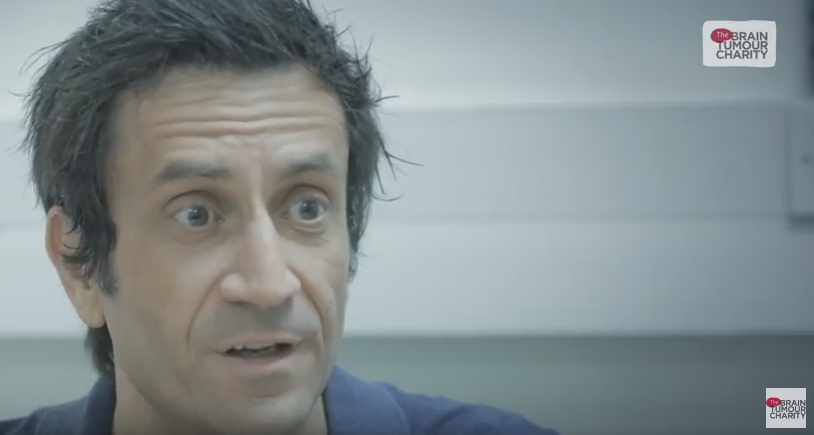INSTINCT – on a mission to beat childhood brain tumours
Fast facts
- Official title: The Institute of Child Health – Newcastle University – Institute of Cancer Research High-Risk Childhood Brain Tumour Network (INSTINCT)
- Lead researcher: Professor Steve Clifford, Professor Chris Jones and Dr Darren Hargrave
- Where: Newcastle University; Institute of Cancer Research; Great Ormond Street Hospital
- When: May 2014 – September 2023
- Cost: £3.2 million. Co-funded with Great Ormond Street Hospital Children’s Charity, Children with Cancer UK, The Alex Bolt Fund, Katy Holmes Trust and Garfield Weston Foundation
- Research type: Paediatric, High Grade, Integrated translational research programme, Academic and Clinical
- Award type: Quest for cures
What is it?
Researchers based at the major brain tumour research centres at Newcastle University, the University College London Institute of Child Health (ICH) and the Institute of Cancer Research (ICR) are exploring new ways to treat some of the most lethal childhood brain tumours. These high-risk paediatric brain tumours include diffuse midline gliomas (formerly known as DIPG), high-risk medulloblastomas, atypical teratoid/rhabdoid tumours (ATRTs) and other rare brain tumours.
Through this research programme the team aim to bridge the gap between biological discovery and clinical practice by developing tailored and targeted treatments for these types of brain tumours. They’ll accomplish this by completing the following strategic aims:
Aim 1: Unified sample collection and molecular analysis
In order to understand tumour behaviour and growth through treatment and/or recurrence, it’s necessary to identify the molecular changes occurring in the cells during this time. To do so requires access to brain tumour samples collected over a long period of time from diagnosis to relapse.
The INSTINCT team will accomplish this aim by creating a protocol to standardise brain tumour sample collection across the three participating centres that treat over a third of childhood brain tumours in the UK. They’ll also perform extensive molecular analysis on the samples, which will in turn provide them with critical insights into key biological processes underlying tumour behaviour and growth, as well as identify potential drug targets.
Aim 2: Screening for new therapies
After identifying the molecular changes and potential drug targets in Aim 1, the research team will use this information to identify promising drug candidates. Using cutting-edge screening techniques, the team will assess the efficacy of various drugs when tested on tumour cells.
Aim 3: Pre-clinical testing
For their third aim, the research team will create improved lab models, also known as pre-clinical models, which are representative of these high-risk paediatric brain tumours.
These pre-clinical models will help the team build on their understanding from Aim 1 to better understand tumour behaviour, as well as test promising drugs. In particular, they’ll assess how effective these drugs are at shrinking the tumour, helping to improve survival and overcoming treatment resistance.
Aim 4: Clinical trials
The INSTINCT team will translate their results from Aims 1-3 to facilitate clinical trials testing the new therapies they identified in Aim 2. Additionally, the researchers and clinical scientists that are part of the INSTINCT team are part of the SIOP-Europe brain tumour trials network, and this collaboration will help drive new therapies to the clinic.
Why is it important?
Despite recent advances in treatment, high-risk paediatric brain tumours remain the leading cause of deaths from cancer in childhood. A greater understanding of the biology of these tumours is needed and these findings need to be translated to effective therapies to help improve the lives of these children.
Who will it help?
This programme of research brings together world-class international researchers with a wealth of expertise in genetics, biochemistry and drug discovery. The strengths and knowledge of the scientists and clinicians involved will drive new discoveries and rapid clinical translation of treatments to ultimately help children affected by these tumours and their families.
We believe the research we’re doing is cutting edge, it’s pioneering in terms that we’re actually focusing very much on high risk brain tumours.
Dr Darren Hargrave
Milestones
Achieved
- On analysing brain tumour samples collected from children with medulloblastoma during the course of their disease, the research team have identified two markers that could help predict the course of the disease.
- The research team have identified weaknesses in ATRT tumours and are now testing potential drugs in pre-clinical models.
- The research team have identified certain types of drugs that could be effective against tumours that have a specific mutation called ATRX in children diagnosed with high-grade gliomas.
Upcoming
- Building on their knowledge, the team will now identify drug targets to develop tailored therapies for children diagnosed with high-risk medulloblastoma.
- The research team are working hard to identify drugs that will be effective in targeting high-grade gliomas that have a particular mutation called H3.3G34.
- The team are going to collect and analyse both clinical and biological data from other extremely rare childhood brain tumours.
Our research programme has really grown alongside the charity and the funding that it’s been able to provide
Professor Steve Clifford
If you have any questions about this, or any of our other research projects, please contact us at research@thebraintumourcharity.org
Research is just one other way your regular gift can make a difference
Research is the only way we will discover kinder, more effective treatments and, ultimately, stamp out brain tumours – for good! However, brain tumours are complex and research in to them takes a great deal of time and money.
Across the UK, over 100,000 families are facing the overwhelming diagnosis of a brain tumour and it is only through the generosity of people like you can we continue to help them.
But, by setting up a regular gift – as little as £2 per month – you can ensure that families no longer face this destructive disease.



